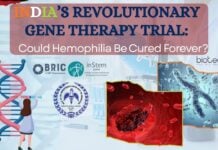TIGS Rare Genetic Disorder Program Research Assistant Opening For MSc Life Sciences
TIGS Rare Genetic Disorder Program Research Assistant Opening For MSc Life Sciences. MSc Life Sciences Candidates Apply For Research Assistant Job. Interested and eligible applicants can check out all of the details on the same below
Possible Interview Questions are posted below
This job expires in
Job Opening for Research Assistant (Job Code – 18)
(All applicants must list Job code number in their application to be considered)
TIGS, founded in 2017, is a non-profit research institute that aspires to develop solutions to challenges in human health and agriculture. TIGS is a unique initiative to support applications of cutting-edge science and technology in genetics and genomics to solve societal problems of the country. The most significant challenges that impede the achievement of health equity and nutrition security for all of India’s population require systematic evidence-based scientific advancements and technological solutions. Research programs at TIGS are focused on three broad areas: Infectious Diseases, Rare Genetic Disorders, and Crop Improvement.
TIGS is a program driven research institute with a focus on solving pressing societal challenges. We are seeking applications from enthusiastic candidates to join as Research
Assistant in Rare Genetic Disorder Program.Website: www.tigs.res.in.
Number of positions: 01
Duration: Initially for one year.
How to Apply
If you are a dedicated researcher with a passion to transform your research to clinical applications and excited to work in close collaboration with hospital teams, we encourage you to apply for the above research position and become part of our research team. Please send the following documents, with a clear reference to the job number listed above & to the following email address: [email protected].
- Cover letter with CV with email, phone number and contact details of 2 referees
- Research interests and statement of purpose for this position (one-page max)
Please note, emails with only attached CV will NOT be considered. (Applicants must list Job no JC – 18 in their application to be considered).
Application Deadline: September 3, 2023
Roles and Responsibilities:
Research Assistant (JC – 18): Selected candidates are expected to perform:
- Execute research studies that contribute to the diagnosis of Monoamine neurotransmitter disorders
- The work involves working closely with hospital teams, acquire and process patient samples while ensuring proper sample preparation, storage and documentation
- Contribute to the development of protocols and workflow
- Expected to have problem-solving skills and work independently as well as collaboratively with the team
Essential Qualifications/Requirements
- MSc in life sciences, analytical chemistry, clinical biochemistry, Medical Biochemistry, M. Pharm/M. Tech/ M. Tech (Pharm)
Desirable Qualifications:
- Preference will be given to candidates with 1-2-year hands-on experience using HPLC, LC-MS, MS/MS in an industry or academic organization. Background in Bioinformatics. Experience with handling human blood samples and working in BSL-II facility
Skills required: Essential:
- Understanding of monoamine neurotransmitter system, neurobiology and related disorders, Molecular Biology techniques, Biochemical techniques, writing and communication skills
Check the notification below
Here are five possible interview questions along with their answers for the Research Assistant position at TIGS:
- Question: Can you provide an overview of your educational background and any relevant experience in the field of rare genetic disorders? Answer: I hold an MSc in Life Sciences, which has provided me with a strong foundation in genetics and biochemistry. Additionally, I have gained hands-on experience in clinical biochemistry during my academic journey. While I haven’t specifically worked on rare genetic disorders before, my coursework and practical exposure have equipped me with the necessary skills to contribute effectively to this role.
- Question: Could you explain the significance of monoamine neurotransmitter disorders and their impact on human health? Answer: Monoamine neurotransmitter disorders are conditions that affect the proper functioning of neurotransmitters like dopamine, serotonin, and norepinephrine. These neurotransmitters play a crucial role in mood regulation, cognition, and other neurological functions. Disruptions in their levels or metabolism can lead to various mental health and neurological disorders. As a Research Assistant, I understand that investigating these disorders is vital for diagnosing and managing related conditions.
- Question: How familiar are you with techniques such as HPLC, LC-MS, and MS/MS, and how have you applied them in your previous experiences? Answer: I have a solid theoretical understanding of these techniques from my academic background. While I haven’t directly worked with them in a professional setting, I am eager to apply and expand my knowledge in a practical context. I am a quick learner and believe that my foundational knowledge will allow me to adapt and contribute effectively to their application in diagnosing rare genetic disorders.
- Question: In your previous experiences, have you had the opportunity to collaborate with hospital teams or work in a BSL-II facility? Could you share any relevant experiences? Answer: While I haven’t had direct experience with hospital teams or BSL-II facilities, I have worked on projects that required coordination and collaboration within a team. I am comfortable working in a structured and organized environment to ensure proper sample collection, storage, and documentation. I am confident that my adaptability and teamwork skills will enable me to work effectively in these settings.
- Question: Could you describe an instance where you had to develop and optimize protocols for a research project? What challenges did you face and how did you overcome them? Answer: During my academic journey, I was involved in a project that required optimizing a molecular biology protocol for gene expression analysis. I faced challenges in standardizing reaction conditions and ensuring reproducibility. To overcome this, I collaborated closely with my mentors, conducted thorough literature reviews, and performed iterative experiments. This experience enhanced my problem-solving skills and taught me the importance of attention to detail in protocol development.
Remember, these are sample answers and can be tailored based on your actual experiences and qualifications.
Editor’s Note: TIGS Rare Genetic Disorder Program Research Assistant Opening For MSc Life Sciences. Please ensure you are subscribed to the Biotecnika Times Newsletter and our YouTube channel to be notified of the latest industry news. Follow us on social media like Twitter, Telegram, Facebook





































